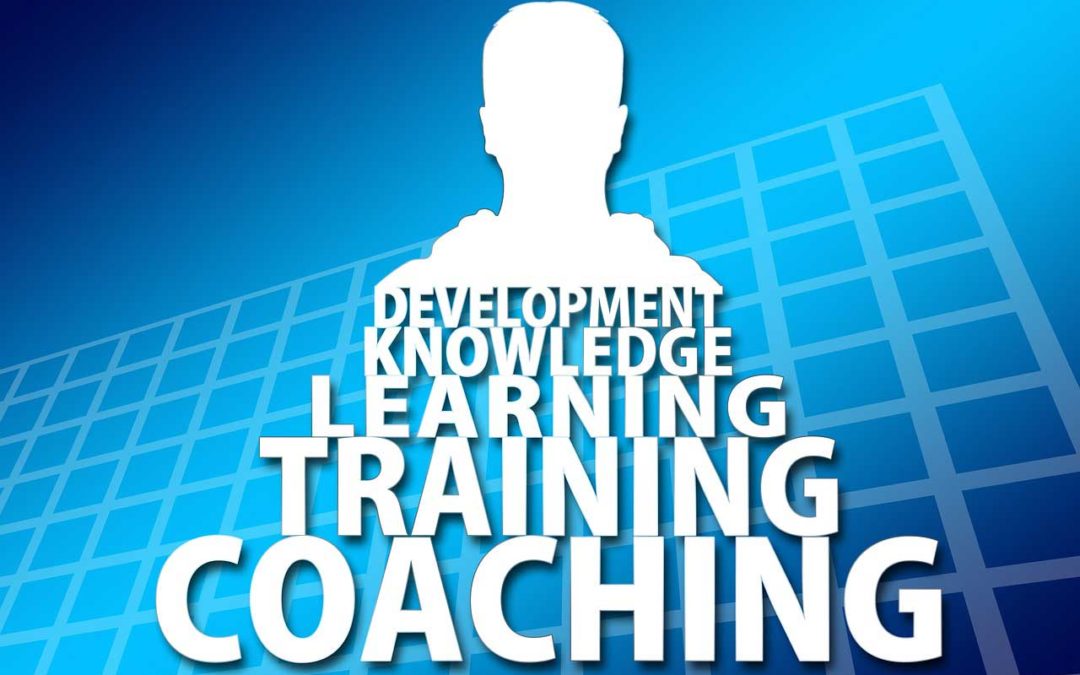
I am frequently asked, “Do you have a test that can tell me what my perfect career is?” The good news and bad news answer to that question is simply “no.” We human beings are much too complex and multi-dimensional in our career needs for any test to give you “the answer.”
I am particularly skeptical of “aptitude tests” that tell you to choose a career simply because you have a talent for it. Many people, myself included, have been steered into careers for which they had great aptitude, but no love. Personally, I have an aptitude for math, but after getting a degree in Computer Science I discovered that I loathed spending all day in front of a computer.
Now here’s the good news – there are some psychological assessments that give you very useful information to focus your exploration. One of these is the Myers-Briggs Type Indicator, or MBTI for short. Based on Carl Jung’s theories of personality type, the MBTI can identify the unique ways that you gather information, make decisions, gain energy, and deal with the outside world. More importantly, it can help you identify work activities and environments that will fit your personality type.
Another useful tool is the Strong Interest Inventory. It statistically compares the patterns of your interests to the interests of people who are satisfied and successful in hundreds of different occupations. The theory is, if you like the same school subjects, hobbies, and work activities that a satisfied electrician, HR manager, or insurance sales rep likes, you will probably also enjoy the career they enjoy. Versions of the Strong have been in use for several decades, and its theory has proven true for millions of people.
I will never forget the words of one of my mentors, Bob Murff, who defined bad career counseling as “three tests and a cloud of dust.” In other words, assessment results are only a starting point for effective career exploration. The MBTI and Strong give you useful information, not answers. An experienced career consultant can help you combine your assessment results with your values, work history, and other personal factors, to decide on a career path that is uniquely fulfilling for you.

One of the first things I discovered when I became a career consultant is that there are many companies out there who prey on discouraged and desperate job-seekers, taking them for thousands of dollars, and delivering very little in return. On the other hand, there are many more honest, ethical, insightful, and genuinely helpful career consultants who change people’s lives for the better on a daily basis. So, how can you tell one from the other, and how do you choose a career consultant that is right for you?
First of all, let me tell you a few warning signs and common practices of the career management con artists. They often:
- Attract candidates by posting phony job openings on major job boards and in newspaper classifieds.
- Are in office spaces that reek of pretentiousness, filled with leather couches, mahogany desks, brass fixtures, and other ostentatious trappings designed to both intimidate you and entice you with their success.
- Have you meet with a sales representative, or “intake specialist,” not the actual career consultant you will work with.
- Both flatter you and undermine your confidence by telling you how much more you should be making (and why aren’t you?)
- Say that they accept “only a few select candidates” who “must be approved by a committee.”
- Promise to “market you” using a “proprietary database of inside contacts” to tap into the “hidden job market.”
- Ask you to sign a contract and pay a large up-front fee, typically anywhere from $3,000 to $10,000 or more. They typically justify it as “a small investment compared to what you will be making once we’ve marketed you into a job that pays what you SHOULD be paid.”
Thankfully, the internet has made it easier for consumers to spread the word about such con artists. Visit a site such as www.ripoffreport.com or www.yelp.com, to see who else may have had experience using that firm. Note however, that some firms change names on a regular basis, attempting to outrun their reputation.
So, how can you select a reputable, ethical career consultant who actually can help you? For starters, try the same techniques you would use to find a doctor, lawyer, accountant, or real estate agent – ask people you trust if they know of any career consultants they would recommend. Whether you find them from referrals or from the Yellow Pages, talk with at least three potential consultants personally for about 15-20 minutes each. (Most consultants will offer an initial meeting either for free or for a very reasonable fee.) Aspects to look for include:
- Office Space – Open and comfortable, not pretentious.
- Credentials and experience – Most good career consultants have an advanced degree in psychology, counseling, or social work, plus many years of hands-on experience in the business world. You should also ask about how much experience they have specifically in career consulting, and how many clients they have worked with.
- References – An ethical consultant should gladly provide you with names AND phone numbers of several past clients.
- Approach – Some consultants prefer to use psychological assessments such as the Myers-Briggs or the Strong Interest Inventory (See the “Can a test tell you what your perfect career is?” post). Others use more creative, open-ended exercises, and still others prefer a very down-to-earth business approach to career problem solving. Ask them about what approaches they use, and select one that you feel will be most effective for you.
- Rapport – It is essential to find somebody you would feel comfortable speaking openly with about your fears and aspirations, your successes and failures.
- Fees – Most ethical consultants charge the same way other counseling professionals do, on a per session basis, typically ranging from $75 to $200 per hour. Some also offer package programs of a set duration, for fees ranging in the hundreds, not thousands, of dollars.
Richard Bolles has a good chapter on this topic in “What Color is Your Parachute?” along with a directory of hundreds of career consultants worldwide. While Bolles cannot personally attest to the quality of all the consultants in his directory, I consider it to be to be as good of a resource for finding quality career consultants as any I can think of.
A good career consultant can help change your life without emptying your wallet. Just keep in mind what Sergeant Esterhaus used to say in Hill Street Blues: “Let’s be careful out there.”

It is a well-known fact that most jobs are found by networking, but the concept of “networking” fills most people with fear, anxiety, and loathing. They picture themselves in big rooms full of strangers, anxiously making small talk and swapping business cards with other people who are equally depressed, anxious, and desperate. Many so-called “networking meetings” are filled with desperate people with one thing on their minds – “how can I get the next stranger to help me with my needs?” It is the job search equivalent of looking for meaningful long-term relationships by hanging out in singles bars.
The problem is that people rarely feel a strong commitment to help out strangers, especially those with whom they have little in common. So stop going to those “networking meetings” and instead, spend more time with fellow members of your tribes.
What do I mean by “tribes”? A “tribe” is any group of people with whom you share some form of common bond. We as human beings are wired to help out others we perceive as in our tribe, in whatever forms we define those tribal bonds. Some of our tribal bonds could include:
- We went to the same high school or college
- We belong to the same church
- Our children play on a soccer team together
- We are members of the same professional association
- We volunteer for the same cause
- We both collect comic books
- We are avid golfers
- We are in the same community college class to learn yoga or a foreign language.
- We worked for the same now defunct employer
- We served in the same military unit
One such tribal bond, for example, exists between Aggies, the students and alumni of Texas A&M University. It does not matter if two Aggies have never met before and are generations apart in age. The bonds forged based on common tradition compel Aggies to help each other. I imagine that, if an Aggie were to suffer an auto breakdown in the middle of nowhere, he or she could phone any fellow Aggie within a hundred-mile radius and expect to get help, no questions asked.
So, instead of going to “networking meetings” filled with strangers, spend more time at your “tribal gatherings”, whether it’s a hobbyist club, an alumni outing, a church service, a professional association, a volunteer project, or your child’s soccer game. Don’t go with an agenda of “how can this help my job search” at the forefront of your mind. Focus on whatever common interest is the basis for your bond, on strengthening established relationships, and on meeting other members that you haven’t gotten to know yet.
Then, you can bring up your job search as a natural part of the conversation. But don’t just look for just sympathy from your fellow tribesmen. They want to help you more tangibly, but they often don’t know how the best ways to do so. So share with them specifically what types of jobs you are looking for, what types of companies you are interested, and what kinds of contacts you would like to meet. Remember that every member of your tribe also belongs to several other tribes. In one of those tribes may be the right connection to your next job.

Preparing questions to ask the employer is the first and most important thing you should do before an interview. Realize that you are going into the interview to make a sale. A good salesman never begins his pitch by just talking about the product. He asks questions of his potential customers to understand their needs and hot issues.
In addition, it is at least as important for you to determine if the job is a good fit for you, as it is for the employer to determine if you are a good fit for the job. So, you should come in with almost as many questions for them as you expect they would have for you.
Finally, don’t wait until the end of the interview to start asking questions. The most effective interviews are ones where there is a conversational back-and-forth interchange between the interviewer and the candidate. That starts in the first few minutes.
Here are 10 of the most useful and important questions you can ask the interviewer:
- Is this a new position or am I replacing somebody? – Early in the interview, you want to know if this position is due to company growth (good), replacing somebody who was promoted (also good), or replacing somebody who was fired or quit (not so good). In any case, it sets the stage for asking about the goals for a new position, or about potential changes compared to the previous job holder.
- What are the most important skills for this job? – Of course you should have thoroughly analyzed the job description beforehand. But it can also be helpful to hear the interviewer’s perspective on which particular skills he or she views as THE most important for the role. Then you can better position your accomplishments to demonstrate those key skills.
- What do successful employees here have in common? – This not only gives you more perspective on the traits you should emphasize about yourself, it also gives you insights into the company culture as a whole.
- What is the biggest challenge for our team in the next six months? – Knowing something about their challenges and headaches can give you ways to position yourself as the needed solution. Note also that the question uses the term “our team”, which subtly gets the interviewer to think of you as already being a team member.
- What would you want me to accomplish in my first six months? How will we measure success? – You want to know their clear expectations for performance in that role, and how it will be measured.
- What are the different career paths? What training is available? – Asking this question shows the interviewer that you are interested in staying with the company for the long haul, and are up for bigger challenges. However, save this for a little later in the interview. You don’t want to give the impression that you are not interested in the current assignment.
- How would you describe your management style? – Just as the hiring manager will want to know your work style and what motivates you, you need to know how he or she manages and motivates team members.
- How would you describe the company culture and values? – Remember, you are not just signing up to fill a job description. You have to evaluate your fit in the organization as a whole. Do you share the same values that they do?
- How long have you been with the company? What attracted you here? – This is a great question to build rapport with any interviewer. Getting them to talk about why they came here can give you more personal insights into what makes the company worth working for.
- What do you like best about working here? What do you like least? – Like the previous questions, these questions deepen rapport with interviewers, by getting them to share their personal experiences. Ultimately, the candidate who is most likely to get hired is not always the most experienced one, but it is usually the one the interviewer most TRUSTS to do the job.
Do not, however, make the mistake of asking about salary, benefits, vacations, flex time, salary, etc. during the interview. They need to know you are interested in the challenges of the job, not the perks. They will give you that information in due time, hopefully when they make you an offer.
In summary, remember that a good interview is a conversation, not an interrogation. Use it as a chance to size them up and build rapport, in addition to selling your skills and experience.

Over the years, I have worked with many job seekers over the age of 40, who worry that employers will pass them over in favor of younger candidates. While I would love to say that age discrimination doesn’t happen, and that employers all highly value your years of experience, that unfortunately is not the case in the real world. All you have to do is count the grey-haired (or in some cases no-haired) heads at most job clubs to see that the over-40 job seekers are having longer, tougher job searches.
And even though age discrimination in hiring is illegal, it can be extremely difficult to prove in court. The more practical solution is to create a resume that makes it difficult for an employer to make assumptions about your age. That way, you at least have a better chance to land an interview and impress an employer with your qualifications in person. There are three things to do with your resume to reduce the chances of age discrimination:
Do not begin your resume by emphasizing your experience – I am amazed at the number of job seekers who worry about age discrimination, but nonetheless begin their resume summary with a phrase like “Veteran Operations Manager with over 30 years of experience in manufacturing …”. That practically screams to an employer “Look at how old I am! I should be retiring soon.” If you have over ten years of experience in your field, just use the phrase “extensive experience” and leave it at that. I have seen job postings that ask for “three years of experience”, or five, or even some that ask for as many as ten, but I have practically never seen a posting ask for more than ten years in any field.
Only cover the last 10-15 years of your work history – That is likely the only experience that is relevant to your employability anyway. Any skills you used more than 15 years ago, you have hopefully demonstrated at a higher level of competence in your more recent positions. Otherwise, if you haven’t used those skills in the last few years, you can’t credibly claim to still be competent at them. Note also that, even if you have been with the same employer for more than 15 years, you can still list each position within that employer as a separate job title, and only go back 10-15 years.
Do not list graduation dates – Employers almost can’t help but do the math when looking at a resume – look at the graduation date, subtract that from the current year, and add it to 22 (for college grads) or 18 (for high school), to guesstimate the applicant’s age. But no law requires you to list graduation dates on your resume. After you interview and have sold the employer on how great an employee you will be, then they can request that additional detail of graduation dates for any needed background checks.
Note that these tips only help ensure that you get the interview, and that your resume does not get screened out prematurely. There are more tips for fighting age discrimination in the interview, but that’s a topic for another column.

In my previous post, “Three Ways to Avoid Age Discrimination with Your Resume”, I discussed ways to tailor your resume so that employers would not assume you are too old for the job. Those techniques can improve your odds of landing an interview, but it does not completely erase the potential for age discrimination. Once you are face-to-face with a hiring manager, you can’t hide those gray hairs. You must prove to the hiring manager that you have the advantage of experience and NONE of the perceived disadvantages.
Employers fear three primary myths about older workers, and it is up to you to bust those myths in the interview:
“You can’t teach an old dog new tricks” – Managers often believe that older workers are more set in their ways, and that only younger workers are comfortable learning new skills, particularly technology skills. Unfortunately, many of us DO know older workers who perpetuate that myth every time they say “Oh, my kids understand all that techie stuff, but I could never get the hang of it.” Dispel that myth in the interview by slipping in mention of the social networking sites you are active on, the blog you write, the web site you have created, or some other current technology you have recently learned to use. Be prepared with a recent example of how you quickly mastered a new technology, new process, or new certification.
“Older workers aren’t comfortable taking orders from younger managers” – Prepare an example story of a strong, positive working relationship you have had with a much younger manager or co-worker. Don’t talk about how you “showed them how it’s done”, but instead focus on the valuable perspectives and respect you exchanged and gained from each other.
“Older workers won’t put in the long hours” – Let’s face it, many companies like hiring younger workers because they seem more ambitious, more energetic, and less encumbered with family commitments. It’s easier to expect them to work those 80-hour weeks. While I would not recommend signing on to a company where 80-hour weeks are the norm, you should let a potential employer know that you are ready, willing, and able to put in extra effort when the need arises. Come prepared with a recent story of a “crunch time” where you had to burn the midnight oil to get the job done.
One other caveat – be careful not to let the conversation inadvertently stray into areas that emphasize your age difference. For example, if the hiring manager talks about expecting a first child, don’t start talking about your grandchildren.
Once you have busted the myths of older workers, then you can emphasize some of the positive attributes – experience, maturity, perspective, and responsibility – that give you an advantage over the younger competition. Your years of experience are valuable to an employer. Don’t let their myths keep them from seeing your full value.






